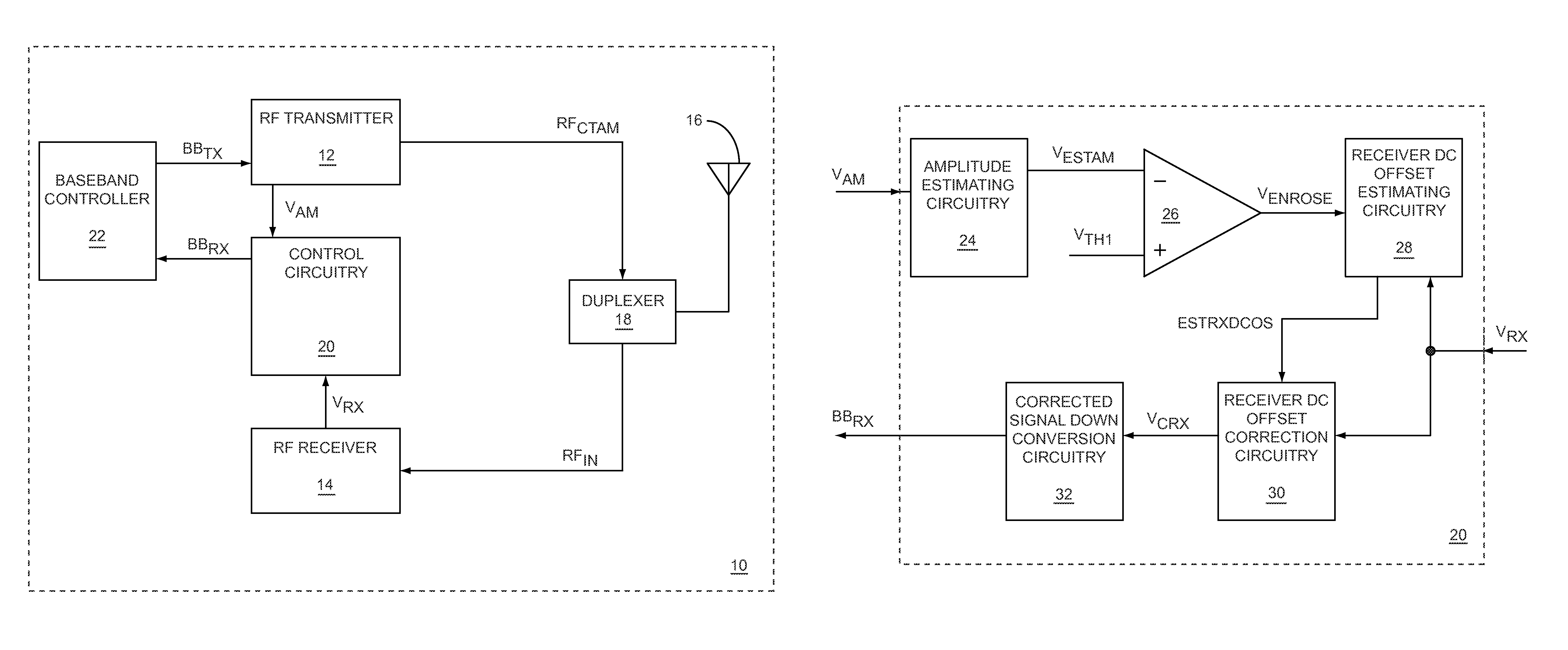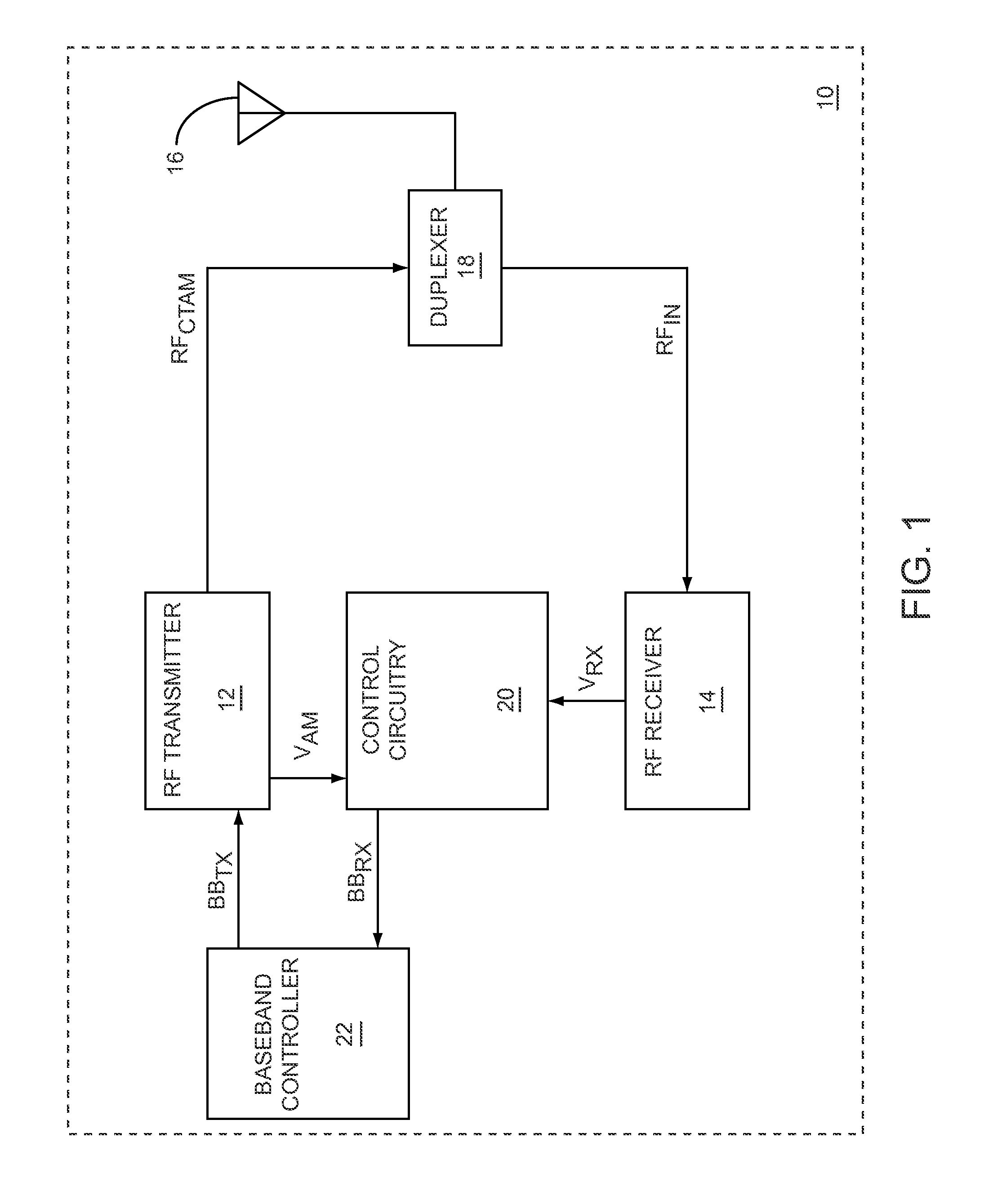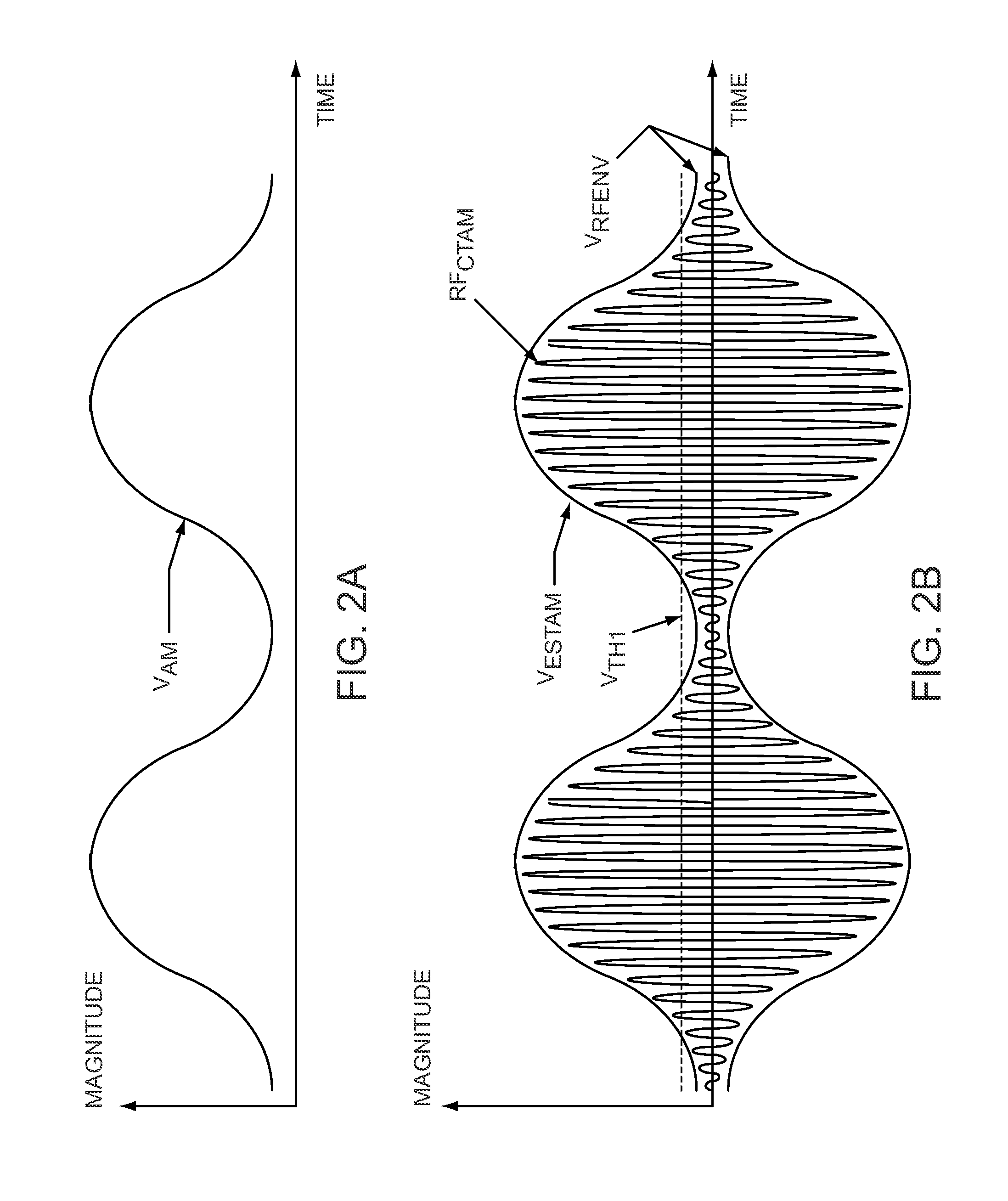DC offset correction of a radio frequency receiver used with a continuous transmission radio frequency signal
a radio frequency receiver and offset correction technology, applied in the direction of dc level restoring means or bias distort correction, amplitude demodulation, baseband system details, etc., can solve problems such as changes in dc offsets, interference with proper processing of electrical signals, and interruption of processed electrical signals
- Summary
- Abstract
- Description
- Claims
- Application Information
AI Technical Summary
Benefits of technology
Problems solved by technology
Method used
Image
Examples
first embodiment
[0010]FIG. 1 shows a radio frequency (RF) communications terminal applying a correction for a receiver direct current (DC) offset to an RF input signal, according to the present invention.
[0011]FIGS. 2A and 2B are graphs illustrating the relationships between an amplitude modulation signal, a continuous-transmission amplitude-modulated (AM) RF signal, and an estimated amplitude signal of the RF communications terminal illustrated in FIG. 1.
[0012]FIG. 3 shows details of control circuitry illustrated in FIG. 1.
second embodiment
[0013]FIG. 4 shows the RF communications terminal applying a correction for a detector DC offset to a detected output power signal, according to the present invention.
[0014]FIGS. 5A, 5B, and 5C are graphs illustrating the relationships between the amplitude modulation signal, the estimated amplitude signal, and a detected output power signal, respectively, of the RF communications terminal illustrated in FIG. 4.
[0015]FIGS. 6A and 6B are graphs illustrating the detected output power signal with a positive detector DC offset and with a negative detector DC offset, respectively, of the RF communications terminal illustrated in FIG. 4.
[0016]FIG. 7 shows details of the control circuitry illustrated in FIG. 4.
third embodiment
[0017]FIG. 8 shows the RF communications terminal applying a correction for a receiver DC offset to the RF input signal, and applying a correction for a detector DC offset to the detected output power signal, according to the present invention.
[0018]FIG. 9 is a graph illustrating the estimated amplitude signal, such that a first threshold and a second threshold are unequal, according to one embodiment of the RF communications terminal illustrated in FIG. 8.
[0019]FIG. 10 shows details of an RF receiver illustrated in FIG. 8.
[0020]FIG. 11 shows power detection circuitry of the RF communications terminal illustrated in FIG. 8 providing a temperature signal, according to one embodiment of the present invention.
[0021]FIG. 12 shows the power detection circuitry of the RF communications terminal illustrated in FIG. 8 providing a combined signal, according to an alternate embodiment of the present invention.
[0022]FIG. 13 shows details of the power detection circuitry illustrated in FIG. 12....
PUM
 Login to view more
Login to view more Abstract
Description
Claims
Application Information
 Login to view more
Login to view more - R&D Engineer
- R&D Manager
- IP Professional
- Industry Leading Data Capabilities
- Powerful AI technology
- Patent DNA Extraction
Browse by: Latest US Patents, China's latest patents, Technical Efficacy Thesaurus, Application Domain, Technology Topic.
© 2024 PatSnap. All rights reserved.Legal|Privacy policy|Modern Slavery Act Transparency Statement|Sitemap



